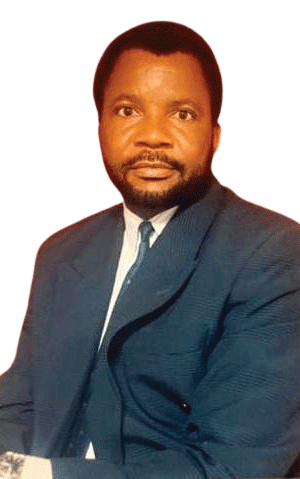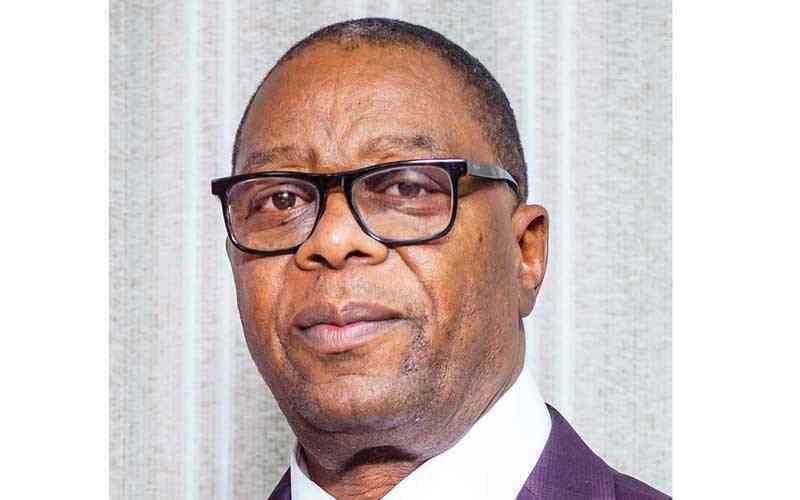
The name Cletus J K Ngwaru is synonymous with Zimbabwean literature, a figure whose work has shaped the educational landscape for generations.
With an illustrious career spanning several decades, Ngwaru has not only penned books that are vital to Zimbabwe’s education system, but has also contributed to the preservation and promotion of the country’s cultural heritage.
From his extensive work in both English and ChiShona to his ability to balance local themes with global relevance, Ngwaru remains one of the country's most respected writers.
Standard Style reporter Sandra Ngwaru (SN) caught up with Ngwaru, who reflected on his motivation, his adaptive writing style, and how his works continue to resonate in the digital age.
Below are excerpts from the interview.
SN: What has kept you motivated to write for so long?
CJN: What has kept me going for so long is the immense satisfaction I get when a new book of mine hits the market. It’s a feeling similar to that of a mother welcoming a new child into the world—each book is like another offspring, carrying part of me. Writing isn’t just a profession; it’s a deeply personal journey where each creation brings its own sense of fulfillment. There’s something magical about transforming ideas into words and seeing them take form in a book, ready to inspire, teach, or entertain someone. The process itself, from the initial thought to the final product, keeps me energized. It’s the legacy I want to leave behind, knowing that my words will live on long after I’m gone.
SN: How do you ensure your writing stays relevant and in tune with current times?
- CJK Ngwaru: Zimbabwe’s revered writer
Keep Reading
CJN: My writing evolves with the times because, as a storyteller, it's important for me to stay connected to the world around me. I ensure that by reading voraciously—from newspapers to magazines—absorbing everything from political debates to social issues. I also find value in listening to news bulletins, sports commentary, and engaging with people from all walks of life. These conversations give me a pulse on what’s happening in society, which is reflected in my work. Writing, to me, is a mirror reflecting society’s changes. It’s not just about putting words on paper, but about understanding the world, adapting, and evolving my themes to stay relevant. If a writer remains static, their work risks becoming disconnected from the realities of their audience.
SN: How does your work help in teaching and preserving Zimbabwean culture, language, and history?
CJN: As a language writer, my focus is on teaching and preserving the cultural fabric of Zimbabwe through the four core skills of listening, speaking, reading, and writing. I design activities that engage readers with our traditions and values. For example, I use folk tales to teach about heroism and community, ensuring that these oral traditions live on in written form. My books incorporate contemporary themes, such as drug abuse or good neighborliness, which reflect the everyday realities Zimbabweans face, while also keeping alive our moral and cultural heritage. I’ve also written extensively on Shona proverbs, which are a vital part of our identity, offering wisdom and guidance that’s been passed down through generations. My goal is to make these elements of our history accessible, especially to younger readers, ensuring that as we move forward, we never lose sight of where we come from.
SN: How have you incorporated technology into your writing and storytelling in the digital age?
CJN: As a writer, I’ve embraced the digital age not only by integrating it into the content of my work but by using it as a tool to reach a wider audience. My books, for example, now include lessons on the responsible use of technology—showing young readers how to use gadgets like mobile phones and computers ethically. But beyond that, the shift to digital platforms has expanded my reach. With the increasing digitisation of books, my publishers are working to make my work accessible electronically, making it easier for readers, both in Zimbabwe and abroad, to access my books. It’s an exciting time because technology has allowed stories to transcend physical borders, ensuring that African voices, including mine, are heard globally.
SN: What wisdom would you like to impart after decades of writing? How do your life experiences shape the stories you tell today?
CJN: If there’s one piece of wisdom I’d share after all these years, it’s that learning is a lifelong process. Never stop learning. The world we live in is constantly changing, and to stay relevant as a writer, one must adapt and grow. My life experiences have taught me resilience and the importance of staying open to new ideas. The stories I tell today are more nuanced because they come from a place of lived experience—they’re a blend of traditional values and contemporary issues. I’ve learned that to tell meaningful stories, you must not only observe the world but also reflect on your personal journey. It’s this combination that gives depth to my characters and authenticity to my narratives.
SN: Have your works gained international recognition, and how do you balance writing for a Zimbabwean audience with a global one?
CJN: Yes, my work has gained some international recognition. For example, I received a congratulatory call from abroad for my book Functional English. Additionally, Zimbabwean children in the diaspora are using my books, which is deeply gratifying. The balance between writing for a Zimbabwean audience and a global one is not difficult for me because many of the issues I tackle—such as climate change, diaspora experiences, and drug abuse—are universal. The world has become a global village, so while my stories are deeply rooted in Zimbabwean culture, they resonate with global audiences because the underlying human experiences are similar. The aim is to stay true to my roots while also engaging with the broader world, and I find that these two perspectives naturally complement each other in my work.
SN: What current projects are you working on that you’re excited to share?
CJN: At the moment, I’m working on three English projects and two ChiShona projects, all of which are designed for both the Zimbabwean and international markets. These projects are especially exciting because they allow me to continue exploring both linguistic and cultural themes, while also adapting to the evolving needs of my readers. Whether it's teaching young readers life skills through storytelling or engaging with more complex narratives that deal with contemporary issues, I’m thrilled about the impact these books could have on both local and global readers. It’s my way of contributing to both the preservation of our culture and its adaptation to the modern world.
SN: What advice would you give to emerging writers who look up to you?
CJN: My advice to emerging writers is simple: persistence is key. Think of writing as a baby learning to walk—you will fall many times, but you must not give up. Every stumble is part of the learning process. The most important thing is to keep going, keep improving, and never let failure discourage you. Writing is a journey filled with challenges, but each one teaches you something valuable. If you remain dedicated and passionate, success will follow.
SN: What challenges have you faced as a writer, and how have you overcome them?
CJN: One of the greatest challenges I’ve faced is the financial risk involved in publishing. Publishers are naturally hesitant to invest unless they’re sure a book will sell, which means I need to do a lot of research to ensure there’s a market for my work before I even begin writing. Another significant challenge is piracy, which has become a major issue in this digital age. Writers and publishers are losing revenue because of the illegal distribution of their work. It’s theft, pure and simple, and it discourages creativity. I hope that lawmakers and law enforcement will treat book piracy with the seriousness it deserves, just as they would any other form of theft.
SN: What do you consider to be your most notable achievements as an author?
CJN: I’m incredibly proud of having single-handedly written the entire primary ChiShona course for Grades 1 to 7. I also completed English and a ChiShona reading scheme. These are no small feats, and to have them published by College Press Publishers is a source of great pride for me. These books are still used widely, and knowing that they continue to shape the education of young Zimbabweans is one of my most fulfilling achievements. I believe in the power of education, and these projects have allowed me to contribute to the intellectual development of countless students over the years.










